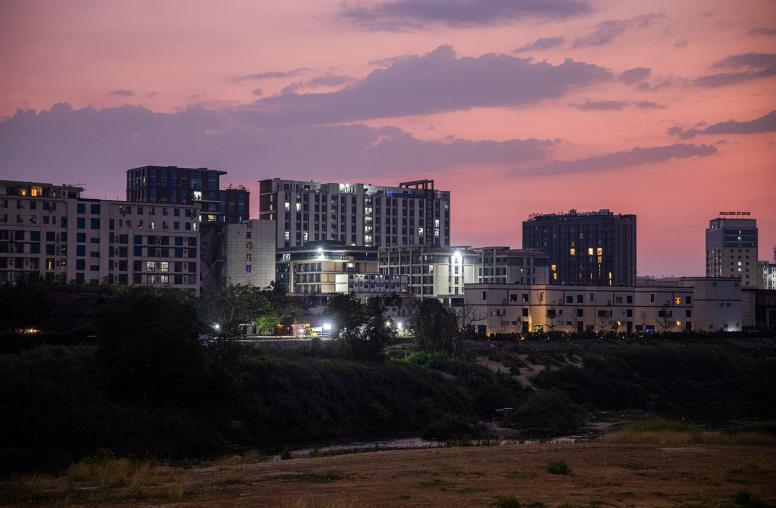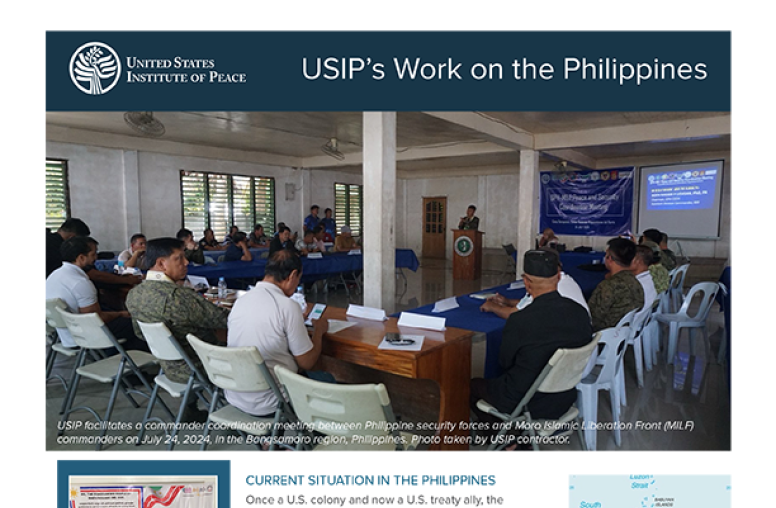Related Research & Analysis

Philippines: Former Combatants Help Keep the Peace During Recent Polls
By: Haroro Ingram, Country Director, Philippines, USIP
For decades, the struggle for peace in the Philippines’ southernmost island of Mindanao has been characterized by armed conflict between the Philippines government and Moro separatist groups, like the Moro Islamic Liberation Front (MILF), and cycles of failed peace processes. The historic 2014 peace agreement between the Philippines government and MILF led to the granting of greater self-governance with the creation of the Bangsamoro Autonomous Region in Muslim Mindanao (BARMM) five years later. What has followed since is an unprecedented, yet very fragile, period of peace and stability.

China Exploits Thailand’s Crackdown on Scam Compounds to Grow Security Influence
Under pressure from China, Thailand has begun its most significant crackdown to date on the transnational crime groups that dominate the Myanmar-Thailand border region. USIP’s Jason Tower explains what prompted the crackdown, how it will impact global efforts to curb transnational crime, what it says about China’s growing influence in the region, and how this all affects U.S. security interests.

The Current Situation in the Philippines
Once a U.S. colony and now a U.S. treaty ally, the Philippines sits at the heart of geopolitical contestation in East Asia. It is also home to a half-century old internal conflict that has long spawned transnational threats to global security.